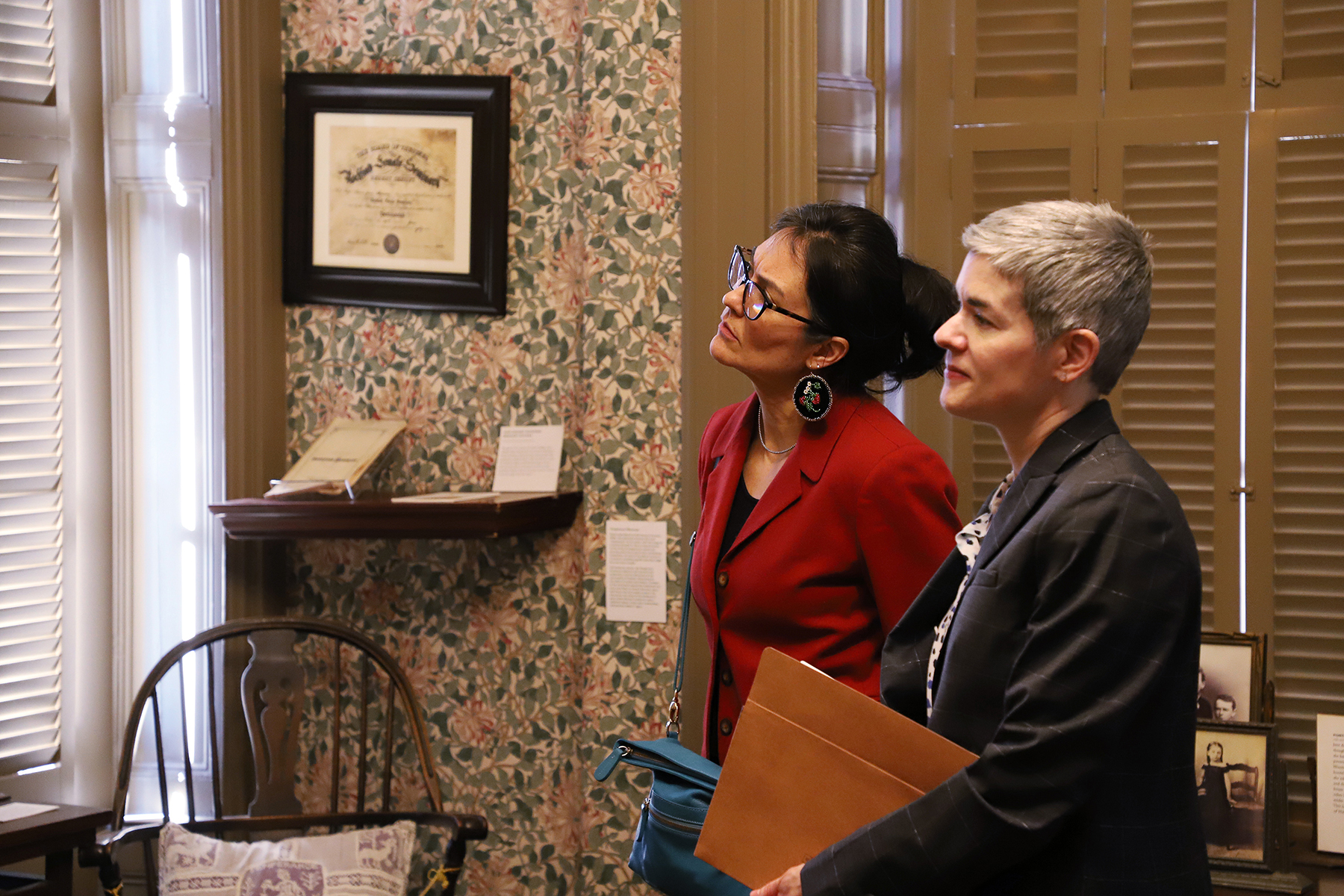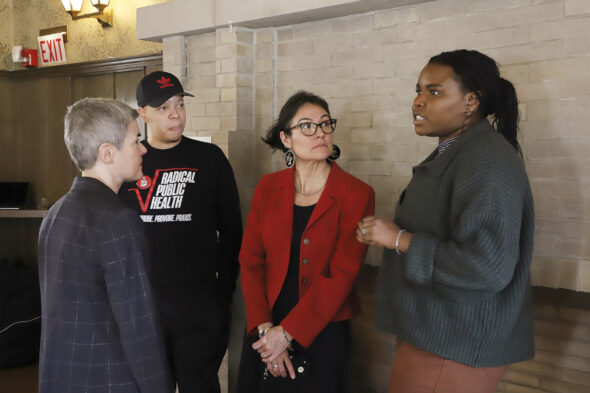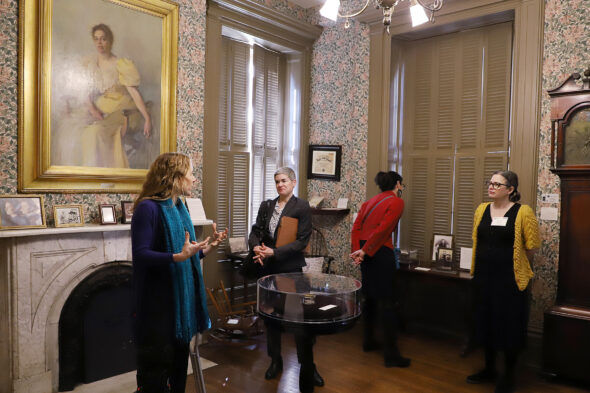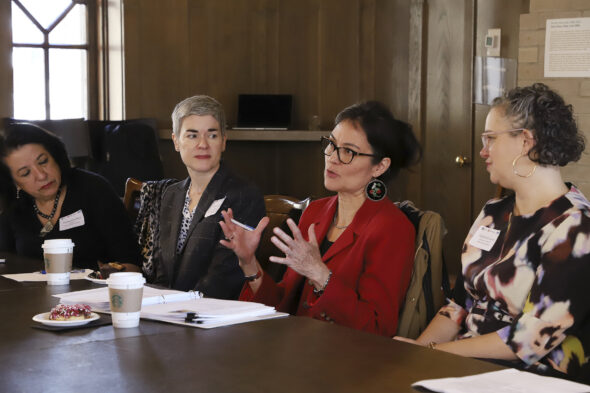National Endowment for the Humanities chair visits Hull-House

The Jane Addams Hull-House Museum had a high-level visitor in February: Shelly Lowe, chair of the National Endowment for the Arts, toured the museum with Director Liesl Olson and Curatorial Manager Ross Stanton Jordan on Feb. 14.
Afterward, University of Illinois Chicago students; Illinois Humanities staff; the deans of the College of Architecture, Design and the Arts and the College of Liberal Arts and Sciences; UIC Provost Karen Colley, and others joined Lowe for a discussion in the museum’s dining hall on the humanities at UIC and beyond.

Lowe’s tour of the museum included a stop at the exhibit on display, “Contemporary Ex-Votos: Devotion Beyond Medium.” The exhibit displays vintage retablos — small devotional paintings — on loan from the New Mexico State University Art Museum’s collection. It’s an extension of a larger display at UIC Gallery 400 of retablos made by contemporary Latino artists. She also saw the Hull-House’s collection of artifacts, photographs and stories of social reformer Jane Addams, the Hull-House settlement and immigrant life in Chicago’s 19th Ward.
Lowe’s visit followed a $180,000 grant to the College of Architecture, Design and the Arts from the National Endowment for the Humanities. The grant will fund research on how Gallery 400 and the Jane Addams Hull-House Museum can be more environmentally sustainable. It’s part of a larger initiative by the National Endowment for the Humanities to help fund strategic planning and facilities for humanities organizations so they can become more resilient to climate change. The College of Architecture, Design and the Arts will form a plan for architecture and infrastructure activities to help achieve net-zero greenhouse gas emissions and align with UIC’s Climate Action Implementation Plan.

Lowe is a citizen of the Navajo Nation and grew up on the Navajo Reservation in Ganado, Arizona. From 2015 to 2022, she served as a member of the National Council on the Humanities, the 26-member advisory body to the agency, an appointment she received from President Obama. Lowe’s career in higher education has included roles as executive director of the Harvard University Native American Program, assistant dean in the Yale College Dean’s Office and director of the Native American Cultural Center at Yale University. She has served on the board of the National Indian Education Association and as a trustee on the board for the National Museum of the American Indian. Lowe holds a Bachelor of Arts in sociology, a Master of Arts in American Indian studies, and has completed doctoral coursework in higher education from the University of Arizona.
The Hull-House Museum is a dynamic memorial to social reformer Jane Addams, the first American woman to receive the Nobel Peace Prize, and her colleagues whose work changed the lives of their immigrant neighbors as well as national and international public policy.

The Museum preserves the original Hull-House site to interpret and continue the historic settlement-house vision by linking research, education and social engagement. The museum occupies two of the original settlement house buildings: the Hull Home, a National Historic Landmark, and the Residents’ Dining Hall, an arts and crafts building that has welcomed some of the world’s most important thinkers, artists and activists. Hull-House was founded in 1889 as a social settlement, and Addams and Hull-House residents influenced public policy on public health and education, free speech, fair labor practices and more.
The National Endowment for the Humanities, a federal agency, is one of the largest funders of humanities programs in the United States. It promotes excellence in the humanities and conveys the lessons of history to all Americans by awarding grants for top-rated proposals examined by independent, external reviewers. These grants typically go to cultural institutions such as museums, archives, libraries, colleges, universities, public television and radio stations and to individual scholars. The grants strengthen teaching and learning in schools and colleges, facilitate research and original scholarship, provide opportunities for lifelong learning, preserve and provide access to cultural and educational resources and strengthen the institutional base of the humanities.
